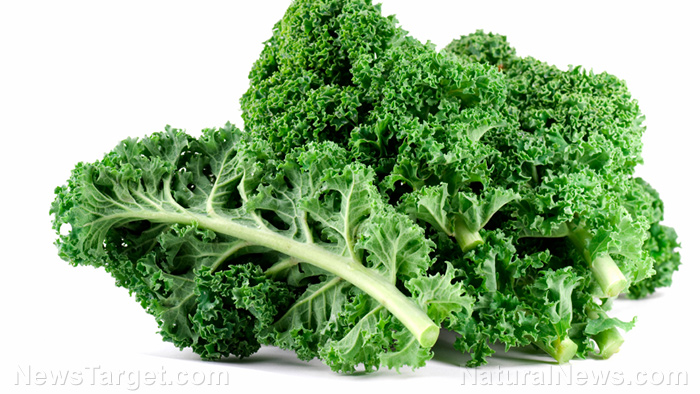Fermented chokeberry may reduce the negative effects of a high-fat diet
03/15/2019 / By Michelle Simmons

Throughout the years, the number of people becoming obese has dramatically increased — so much so that it has been declared as a worldwide epidemic. Since 1975, the number of obese people worldwide has tripled. The World Health Organization (WHO) estimates that more than 1.9 billion adults in 2016 were obese, while there were more than 340 million obese children and adolescents.
Obesity increases the risk factor for diseases, such as cardiovascular diseases, diabetes, musculoskeletal disorders, and some cancers, including endometrial, breast, ovarian, prostate, liver, gallbladder, kidney, and colon cancers. Obese children also experience problems with breathing, greater risk of fractures, hypertension, early signs of cardiovascular disease, insulin resistance, and psychological effects. Additionally, childhood obesity is linked to a higher probability of obesity, premature death, and disability in adulthood.
Fortunately, the condition is preventable. As an attempt to stop this epidemic, researchers continue to search for ways to prevent obesity. One study, in particular, suggests fermented black chokeberries (Aronia melanocarpa), given their anti-obesity properties and their potential to be used as a dietary supplement to manage the condition.
Black chokeberries are mainly grown in Central and Eastern European countries. They are rich in polyphenolic compounds, which are mainly responsible for their many health benefits. Chokeberries have been shown to help treat conditions related to oxidative stress, regulate blood sugar levels, and lower levels of blood pressure, inflammatory markers, and low-density lipoprotein (LDL) cholesterol. However, because of their bitter taste, their potential as a functional food is not maximized. (Related: Chokeberry extract found to stop weight gain, regulate blood glucose and halt inflammation.)
So, for the study, which was published in the Journal of Medicinal Food, researchers from South Korea reduced the bitter taste of black chokeberries by fermenting them. They looked at the effect of fermented black chokeberries with a reduced bitter taste on insulin sensitivity and weight gain induced by a high-fat diet in male mice.
In conducting the study, they fed the mice with a high-fat diet in combination with the 100 milligrams per kilogram (mg/kg) of natural black chokeberries or fermented black chokeberries for eight weeks. Based on the results, fermented black chokeberries reduced weight gain and weakened the increase in triglyceride level brought about by a high-fat diet. Mice fed with fermented black chokeberries also experienced better glucose tolerance and greater insulin sensitivity compared to mice fed with natural black chokeberries.
With these findings, the researchers concluded that fermented black chokeberries could be taken as a dietary supplement to prevent obesity.
Other ways to prevent obesity
In addition to eating fermented black chokeberries, you can prevent obesity by doing the following:
- Eat more foods rich in fiber: Foods rich in fiber, such as chickpeas, fruits, and cereals, have few calories, little fat, and lots of bulk, which can keep you feeling full for longer. Because they are digested slowly, they do not cause blood sugar spikes. Rapid increases and declines in blood sugar levels can make you hungry again. Additionally, whole grains provide nutrients like magnesium and vitamin B6 that many weight-loss diets lack.
- Eat more vegetables: Eating raw and leafy green vegetables, such as carrots, broccoli, and zucchini, also keeps you full. These vegetables are low in calories but are rich in water and slow-digesting fiber.
- Get your protein from fish, chicken, and beans: Getting enough protein can help you lose fat and retain your muscle. However, it is best to get protein from fish, chicken, and beans as they are a lot healthier protein sources compared to red meat.
- Snack on nuts: Nuts are a delicious and nutritious snack for weight loss. They contain healthy fats that help people feel full and protein that may use up calories as it digests.
- Load up on calcium: Calcium influences how fat is broken down and stored. It has been shown that the more calcium a fat cell contains, the more fat it burns.
Read more news stories and studies on preventing obesity by going to FightObesity.news.
Sources include:
Tagged Under: alternative medicine, anti-obesity, Aronia melanocarpa, black chokeberries, chokeberry, fermented chokeberries, functional food, glucose intolerance, insulin resistance, medicinal plants, natural cures, natural healing, natural medicine, natural remedies, obesity, overweight, weight gain, weight management




















